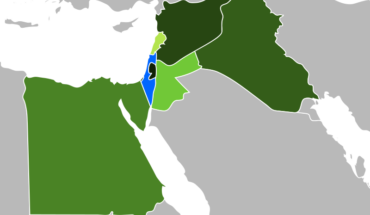By Dominick Rodrigues
Dubai: With freshwater becoming a finite resource and desalination technology critical for thirsty nations, the Zayed International Foundation for the Environment, in cooperation with Khalifa University and the Petroleum Institute in Abu Dhabi, recently held a virtual seminar “The Advances of Nanotechnology in Desalination”.
“This 8th webinar was held in pursuance with the wise vision of the UAE leadership to establish integration with the scientific institutions and to consolidate the country’s pioneering role in sustainable development,” according to Prof. Dr. Mohamed Ahmed Bin Fahd. Chairman of the Higher Committee of the Zayed International Foundation for the Environment, Editor-in-Chief of the Foundation’s Book Series, Editor-in-Chief of the Society and Environment monthly magazine, and Vice President of the World Deserts Organization,
Highlighting the importance of using nanotechnology applications in developing materials that help in water desalination through different aspects, keynote speaker Prof. Linda Zou — Head of the Nano and Water Laboratories at Khalifa University in Abu Dhabi — discussed several useful applications including materials helping eliminate growth of bacteria in membranes that are used in applications of reverse osmosis in desalination — a known problem because sea water is rich in bacterial materials and the presence of these bacteria may cause a decrease in the performance of desalination.
Indicating the use of materials with nanoscale dimensions, including silicon oxides, and materials of a geometrical nature, such as molybdenum sulfide that has anti-bacterial properties, Dr Zou said that she used other applications like graphene oxide materials towards improving the performance of membranes used in water desalination, and using them as electrodes — supported with magnesium oxides that lead to improving water desalination using quantitative ionization.
Dr. Saeed Al Hassan Al-Khazraji, associate professor of chemical engineering at Khalifa University and director of the petroleum institute in Abu Dhabi, highlighted the science of nanomaterials’ beginnings in the mid-nineties, and researches mostly carried out by Dr. Zou and her team at Abu Dhabi University that focused on the use of these substances in water desalination.
Application of technologies that come out through universities and small companies requires time to reach the stage of production, Dr. Al-Khazraji said, adding “In the field of nanotechnology in the United Arab Emirates,, there are small companies that deal with products that are manufactured in universities to the local and global market.”
In the UAE Water Security Strategy 2036, the Water Supply Management Program aims to meet its future water needs in a more sustainable manner by: Increasing use of membrane desalination technologies and renewable energy sources; expanding use of treated wastewater; promoting water harvesting and reducing groundwater extraction. At present, conventional water resources include: rivers/lakes, dams and groundwater, while non-conventional water resources include seawater (desalination), treated wastewater (reuse/recycle) and atmospheric water vapour (cloud-seeding).





